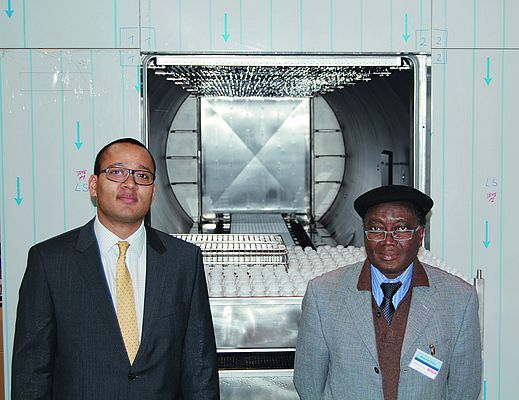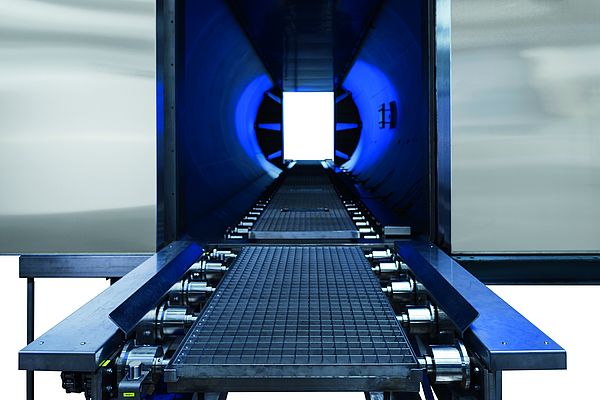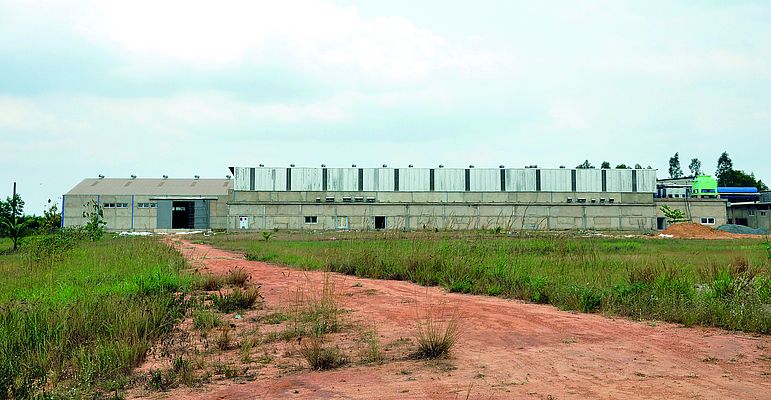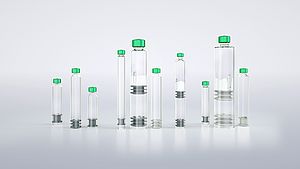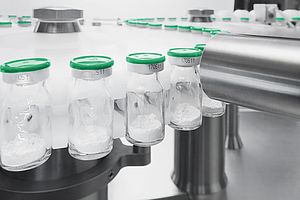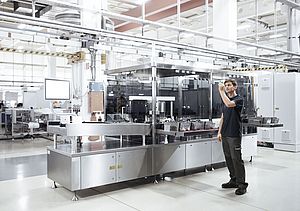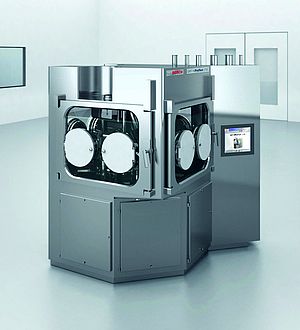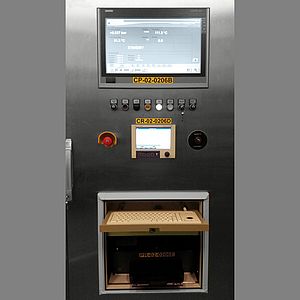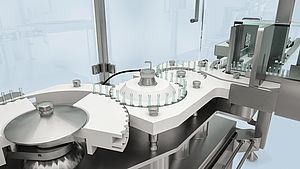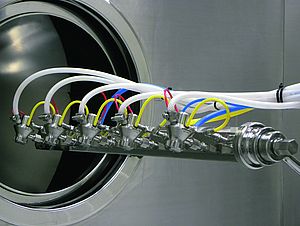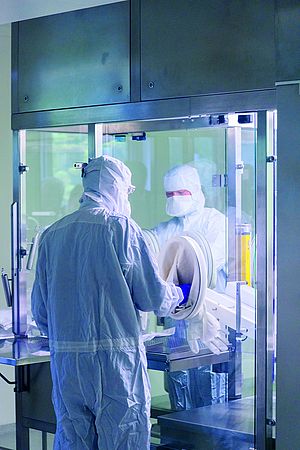Medicine is in short supply in sub-Saharan Africa – even basic medications are difficult to obtain. This led Dr Guy Dovi-Akué to give up his position as chief physician at a German hospital and return to his homeland of Togo. In order to produce urgently needed intravenous solutions, he founded the company Do Pharma in Lomé in 2006. Dr Dovi-Akué relies on a sterilizer from SBM (Schoeller-Bleckmann Medizintechnik), a subsidiary of Bosch Packaging Technology, for the sterilization of the infusion bottles.
Ebola, AIDS, malaria – the people of West Africa are repeatedly affected by particularly severe epidemics. Life expectancy is fifteen years below the global average. The reason is insufficient medical care, as a comparison with global industrial countries shows: while around one quarter of all illnesses around the world occurs in African countries south of the Sahara, the global pharmaceutical industry generates less than one percent of its revenues in this region. Pharmaceutical companies have for a long time avoided investing in the affected countries, mostly due to political instability. Since the local production of medicine is also very limited, even basic medications such as fever-reducing and pain-killing drugs are difficult to get hold of.
“The feeling of being needed”
It was this catastrophic medical situation that motivated Dr Guy Dovi-Akué to return to his homeland of Togo. After completing secondary school in the Togolese capital of Lomé, he emigrated to Germany to study medicine, where he also completed his residency in general medicine and surgery. For more than ten years he worked as chief physician and deputy head at a hospital in Saarburg, Germany. “Most doctors from Africa who work in Europe never go back. But I had the feeling of being needed in Togo. Several of my family members died of illnesses that could have been treated easily,” he reports. In 1991, Dr Dovi-Akué founded the Polyclinique Internationale Saint Joseph in Lomé with the aim of providing people with better medical care. Today the hospital is one of the largest private clinics in Togo, with departments specializing in internal medicine, gynecology, ophthalmology, and radiology.
However, the dedicated doctor continues to procure the majority of the hospital’s medications from Europe – and this at very high prices. Dr Dovi-Akué explains: “There are only a few generic manufacturers here. What’s more, the proportion of counterfeit medications in West Africa is increasing rapidly.” His vision is to produce pharmaceuticals that are in particularly high demand. This is why he founded Do Pharma SA in 2006. The company is planning to manufacture intravenous solutions for the West African market. Apart from Togo, this includes countries such as Burkina Faso, Benin, Ghana, Mali and Niger. “I have decided to enter an area where no one is operating yet. Currently no intravenous solutions are being manufactured in West Africa,” he says.
A long road
Intravenous therapy aids the healing process by providing patients with important drugs and nutrients. All illnesses that entail water loss require infusions. In West Africa, these primarily include diarrhea, malaria, and AIDS. “Per person, roughly one to two liters of infusion per day are necessary,” says Dr Dovi-Akué. “But in West Africa not even one-fifth of that is available.” However, before starting production, the company has had to travel a long and rocky road. Financing the machines proved to be particularly difficult. Dr Dovi-Akué summarizes: “The interest rates at local banks are around twelve percent; investors aren’t lining up, either.” For several years he negotiated with various potential business partners.
Despite the adverse circumstances, he managed to procure the necessary production equipment. Bottling and sterilization are crucial processes to ensure a maximum degree of product quality for the intravenous solutions. This is why Dr Dovi-Akué considered it mandatory to procure the necessary equipment from manufacturers in industrialized nations. The Bosch subsidiary SBM specializes in the development of high-quality sterilizers, and Dr Dovi-Akué was already familiar with the company from various trade fairs. In addition to its excellent reputation and the high machine quality, personal relationships were the deciding factor in his choice of manufacturer. “I have a lot of trust in the specialists at SBM,” Dr Dovi-Akué says. Since early 2012, the company has been advising Do Pharma how to achieve its ambitious goals while maintaining a high level of quality at an affordable price. In the same year, the partners confirmed the deal by handshake at the Achema trade fair for the purchase of an SWS sterilizer.
Sterilization by hot-water shower
The sterilizer was developed especially for sterilizing 100 percent closed containers using the hot water shower process. This process has the advantage of allowing containers with temperature-sensitive liquids to be gently sterilized within short cycles. The intravenous solutions in polyethylene bottles are sterilized at 108 degrees Celsius. The sterilizer has a capacity of 9,500 bottles with a volume of 500 milliliters each, which are manually loaded into stacking trays and transferred to the sterilizer on an automatic roller conveyor.
SBM delivered the machine to Togo in late 2013. While installing the system, the project team truly came to understand the challenges that Dr Dovi-Akué and his colleagues must face on a daily basis. Simple materials were either not available or only at very high prices. This meant that some urgently required materials needed to be ordered from Europe and sent to Togo.
Production nearly ready to start
“The entire project took a long time, primarily due to the financing hurdles that we had to overcome. But now we have accomplished most of what was needed,” says Dr Dovi-Akué. This year the qualification and validation of the line should be completed, and production of intravenous solutions can begin. In the medium-term, Do Pharma is also planning to manufacture fever-reducing medications and antibiotics. “SBM provided us with excellent support throughout the process and continues to help out today. We will certainly keep the company in mind as we expand the project,” Dr Dovi-Akué concludes.


